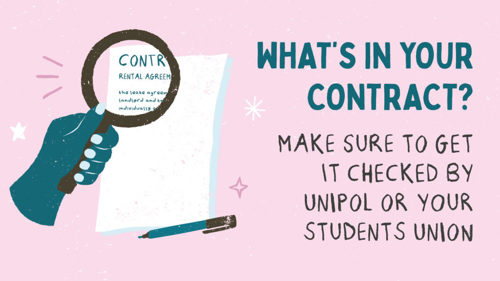It’s time to double check.
With energy prices increasing drastically across the UK, It’s worth having a look at your tenancy agreement to be certain you understand what’s included.
We find that a large proportion of students found their accommodation for their next academic year back between November 2021 – March 2022. Since then, gas and electric prices have increased exponentially and this is going to impact anyone who pays the bills; whether that be students or landlords.
Your landlord might contact you and ask that you to contribute towards the increase in energy costs. This could be through a single upfront payment, an increase to the weekly rent, or potentially even through a 3rd party provider.
It’s vital that as a student in an ‘all-inclusive’ tenancy agreement, you understand that you are not legally obliged to pay more rent in light of the increased energy prices. The tenancy agreement you signed with the landlord at that point in time is legally binding.
The only time a landlord/agent can charge you additional rent for your utilities is if the contract has a fair usage stipulation and you exceed the predetermined fair usage allowance.
That being said, the increase in energy prices is affecting the bill payer the most, and for ‘all-inclusive’ deals, that means the landlord/agent are taking the hit. So if you are happy to increase your weekly rent because you think it’s the fair thing to do, you are welcome to do so – just understand you are not required to.

Unipol and your student union offer a contract checking service to help go through your tenancy agreement prior to signing. ‘All-inclusive’ tenancy agreements are becoming more and more common. Most all-inclusive tenancy agreements will have an energy usage cap or a fair usage policy. Put simply, this means that your agreement is only ‘all inclusive’ up to the point where you exceed the fair usage policy.
If you do exceed the fair usage policy, the landlord/agent may retain a proportion of your deposit if you have paid one. If you have not paid a deposit, the landlord/agent might ask you to pay from the point at which you have gone over the cap or at the end of your tenancy. In the worst case scenario, the landlord/agent could take you to court for any money owed.
To check the conditions of your all-inclusive tenancy agreement, check your contract and look out for a fair usage policy. If you don’t have a copy of your tenancy agreement, contact your landlord/agent and request a copy of the one you signed. They should provide you with a copy within 28 days of you requesting it. If you are having difficulty getting a copy, then contact you Student Union for advice. If you live in Unipol Code property and your landlord/agent won’t provide you with a copy of your tenancy agreement, you can contact us directly.
If you have access to your meters, it’s a good idea to try and keep a monthly record (with photos) of your usage and make sure you take a final meter reading at the end of your tenancy.

If you do have a cap on utilities included in your rent or if you have to pay your bills yourself, then you might want to think about some steps to reduce those bills. Find some good info on the Energy Saving Trust or the Money Saving Expert websites. More information about managing your bills can be found on the Unipol Website

